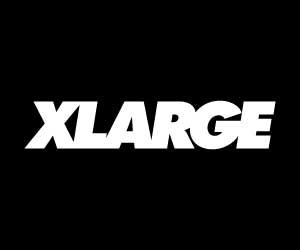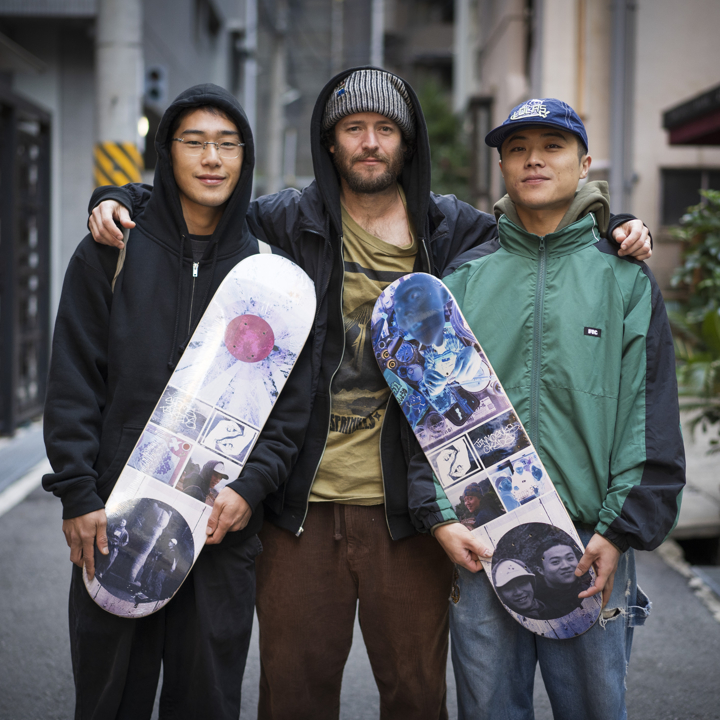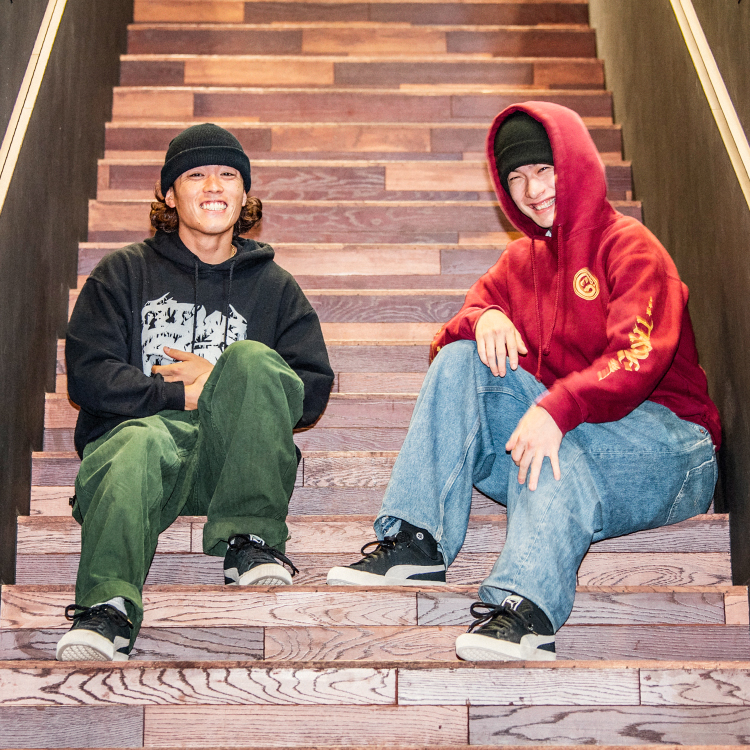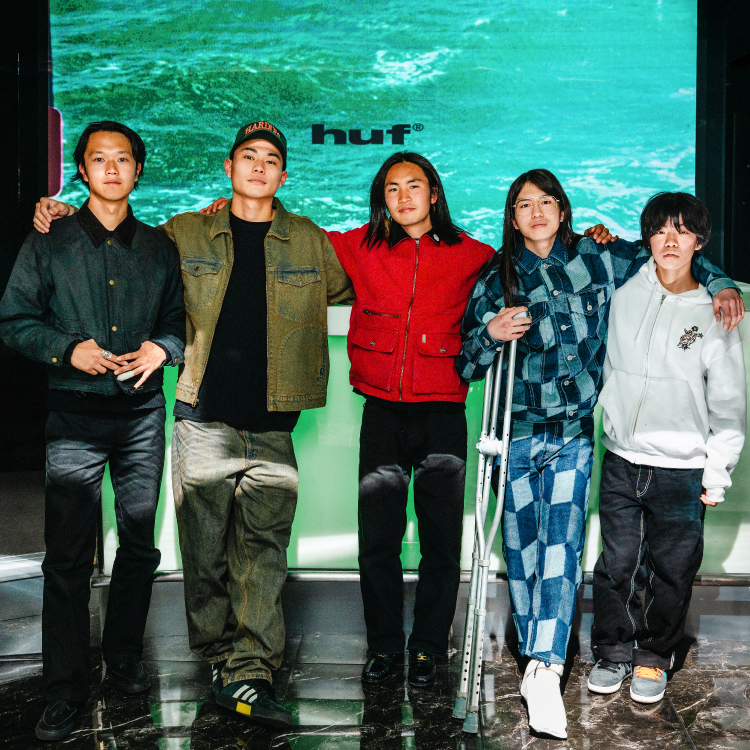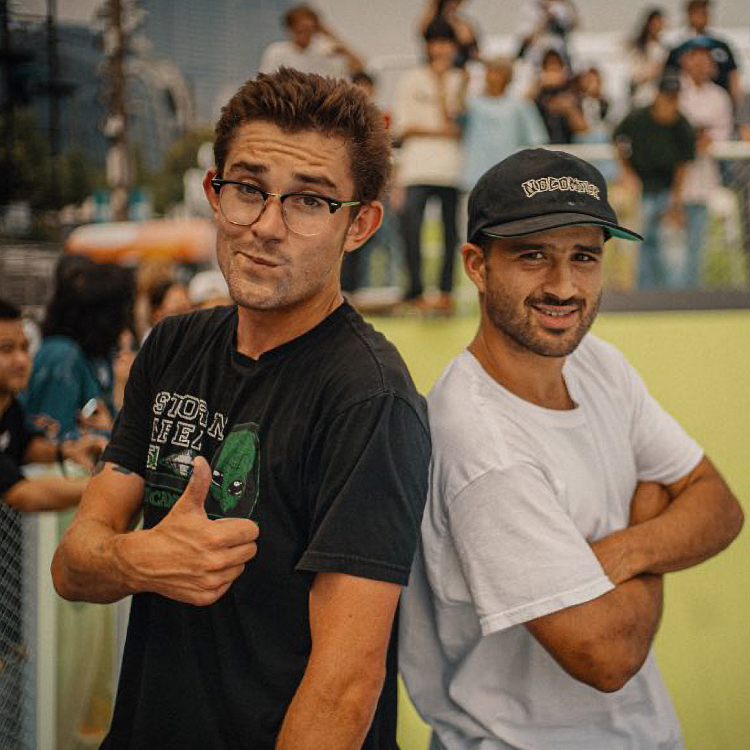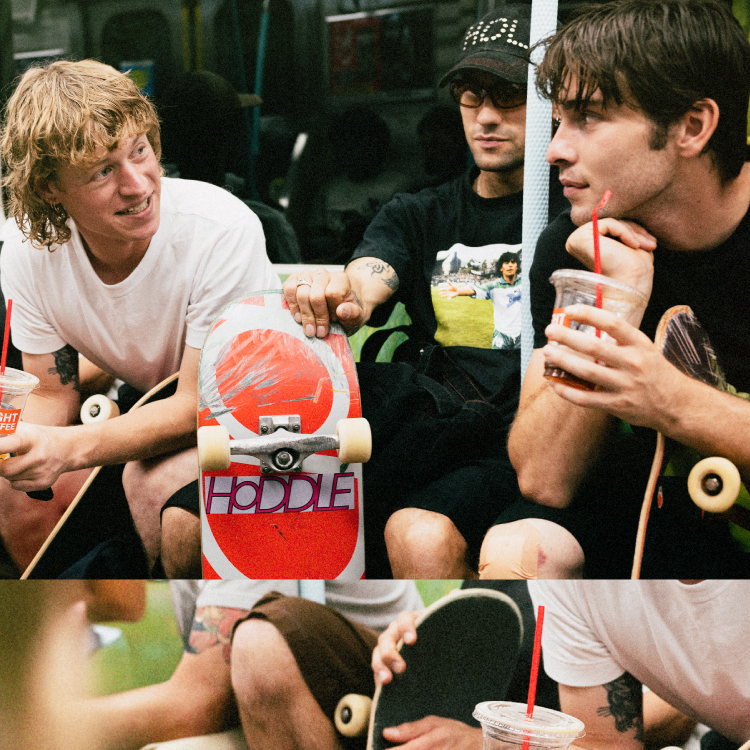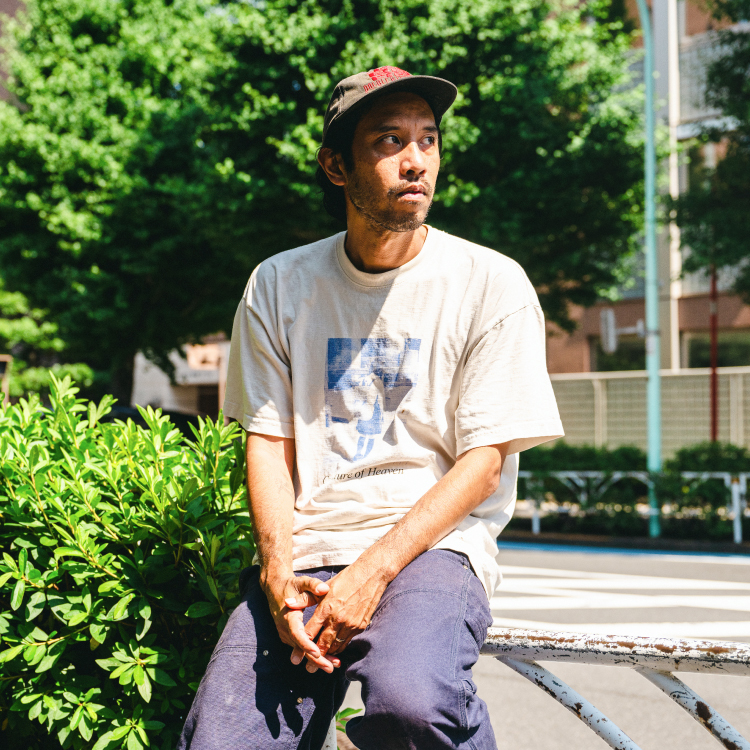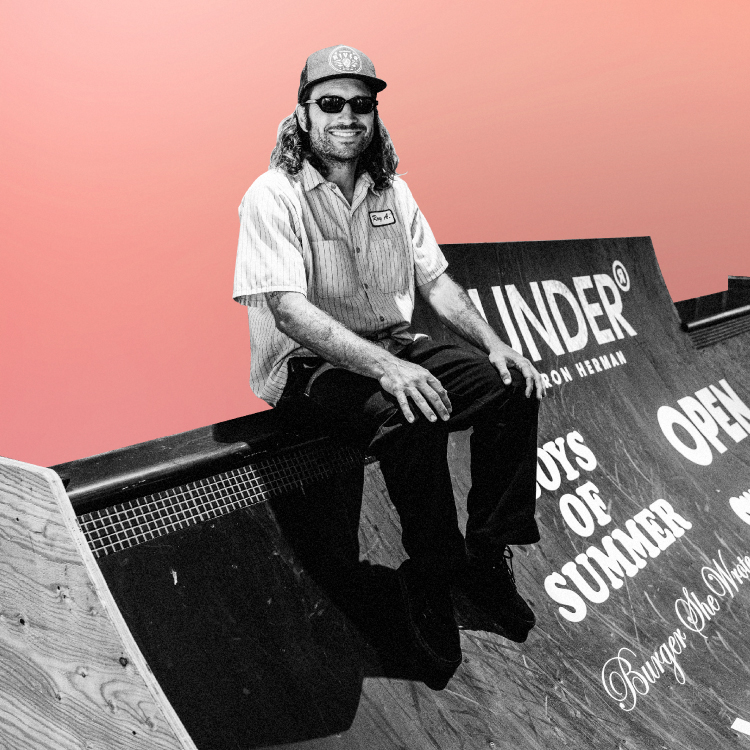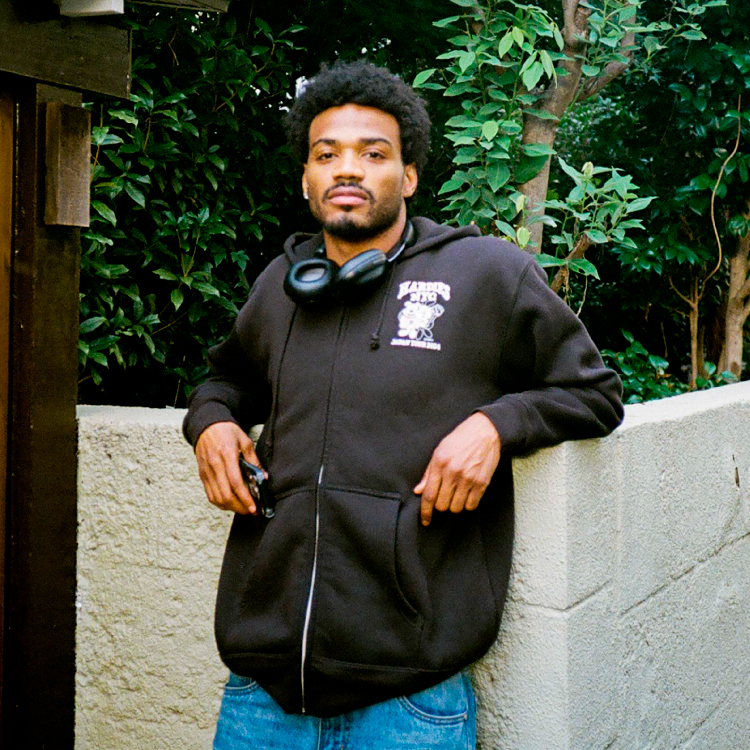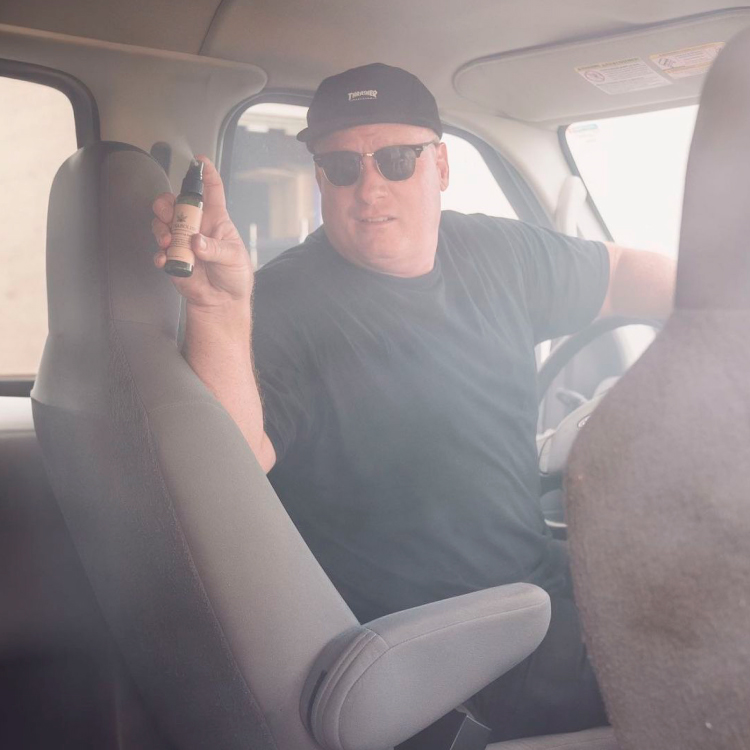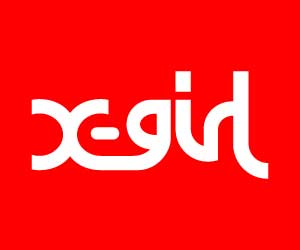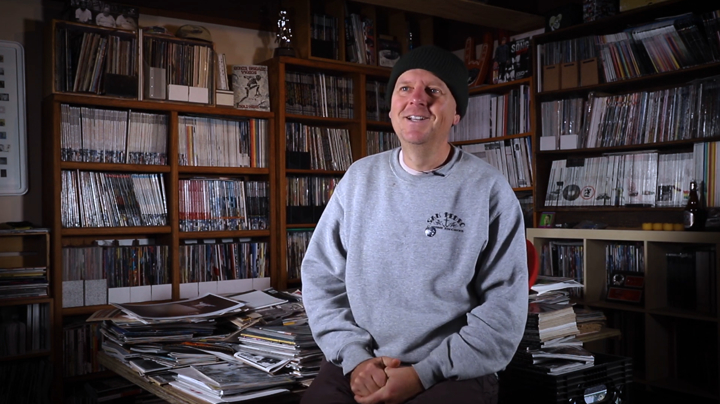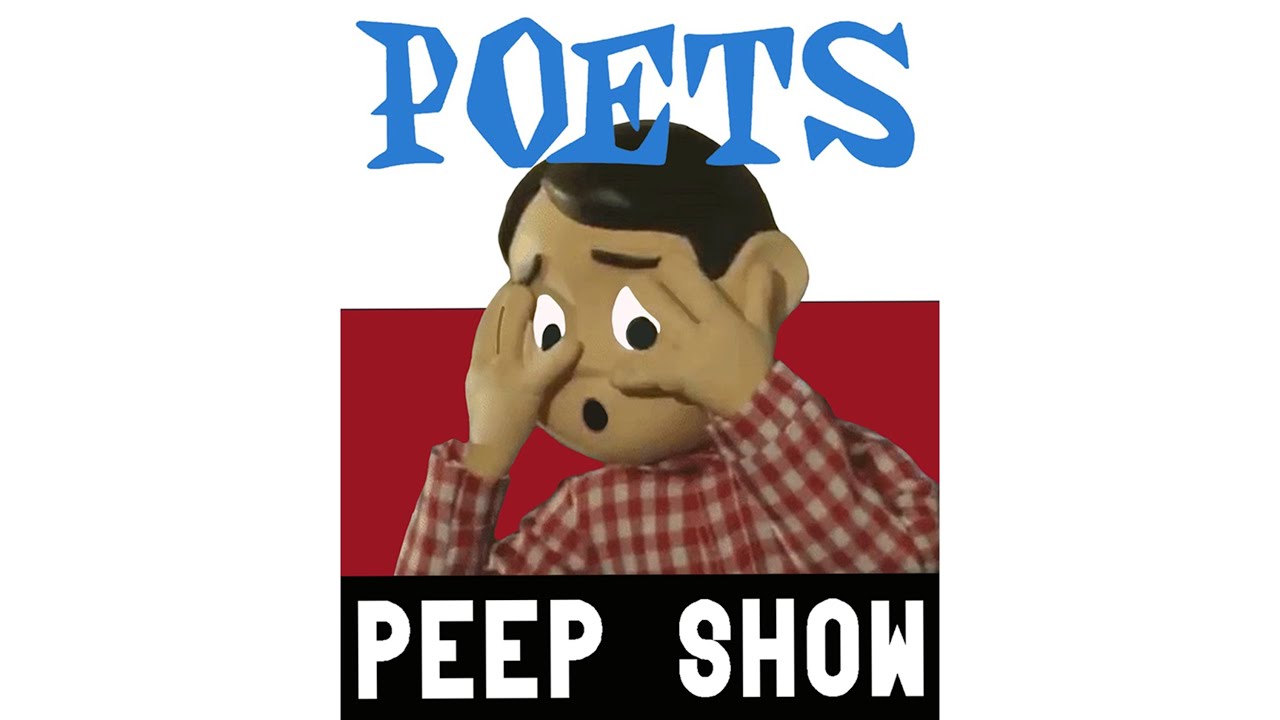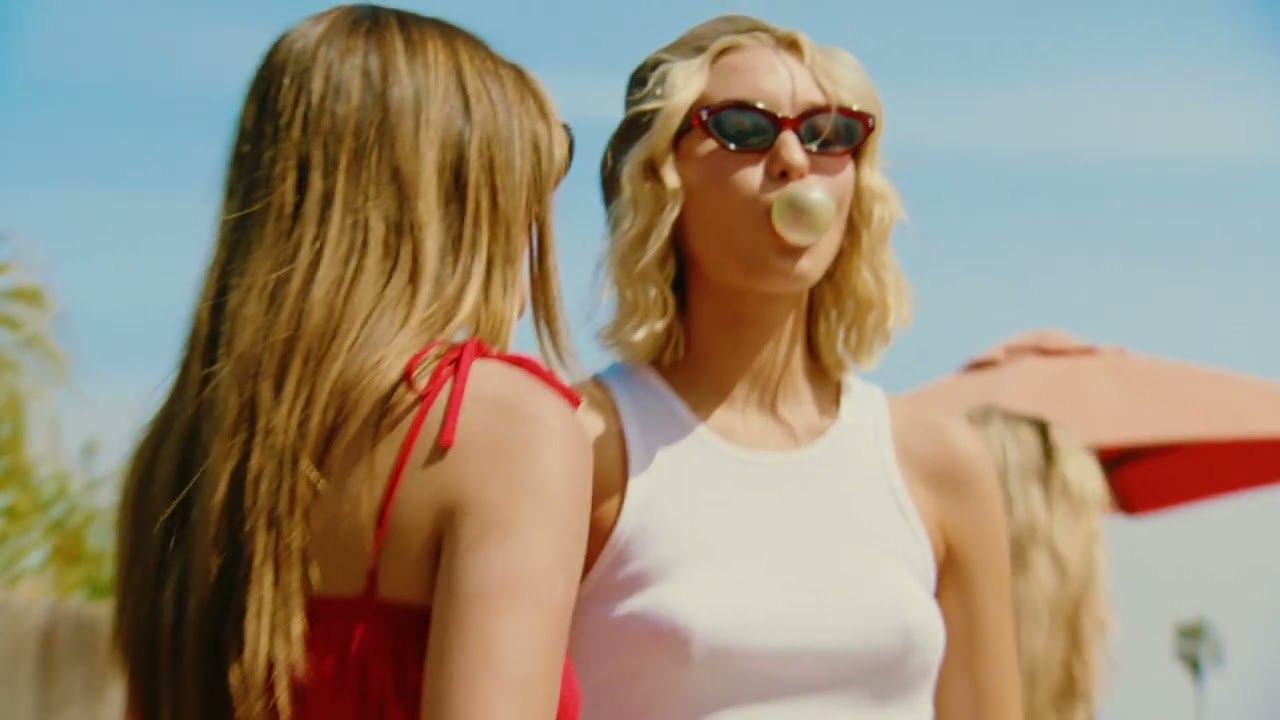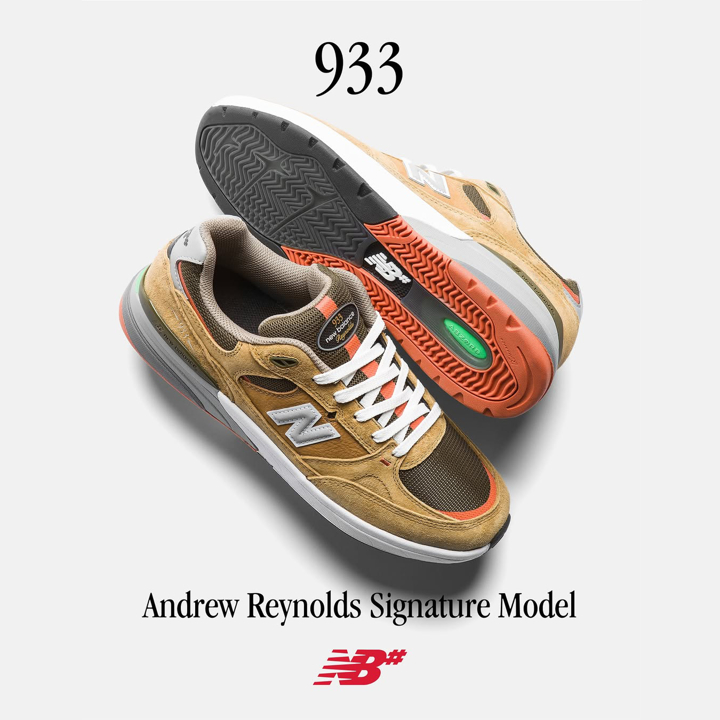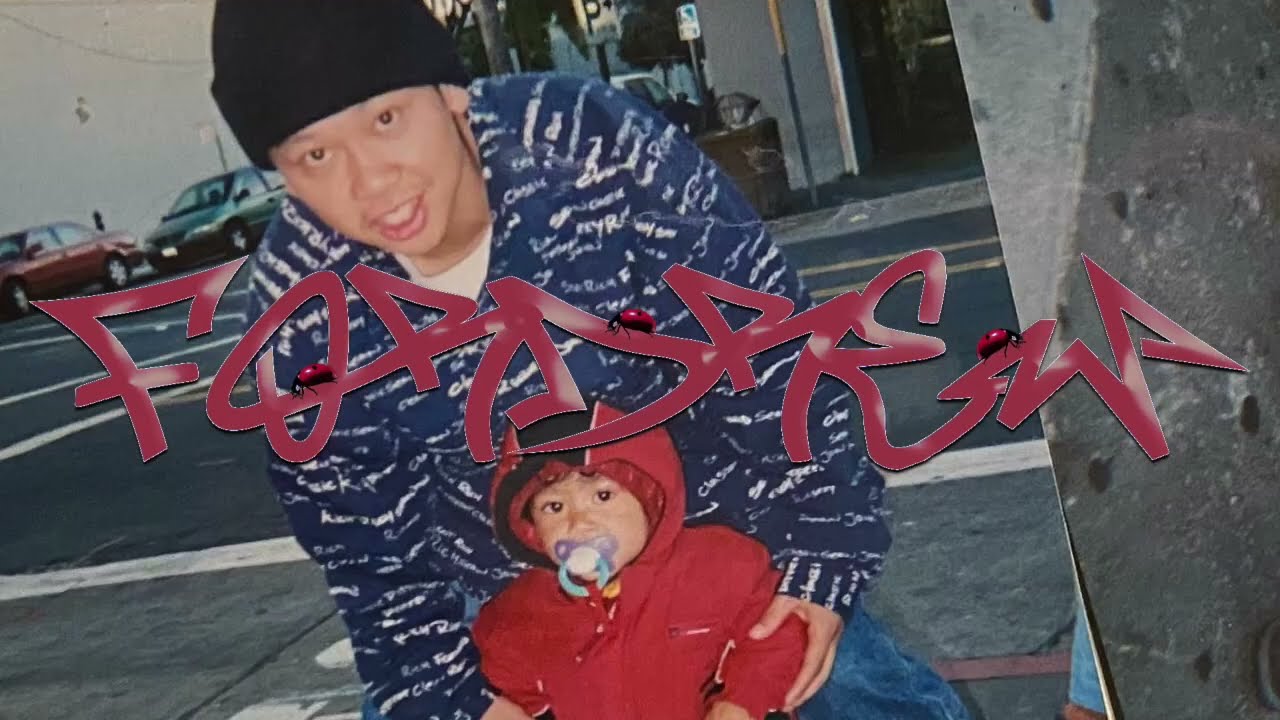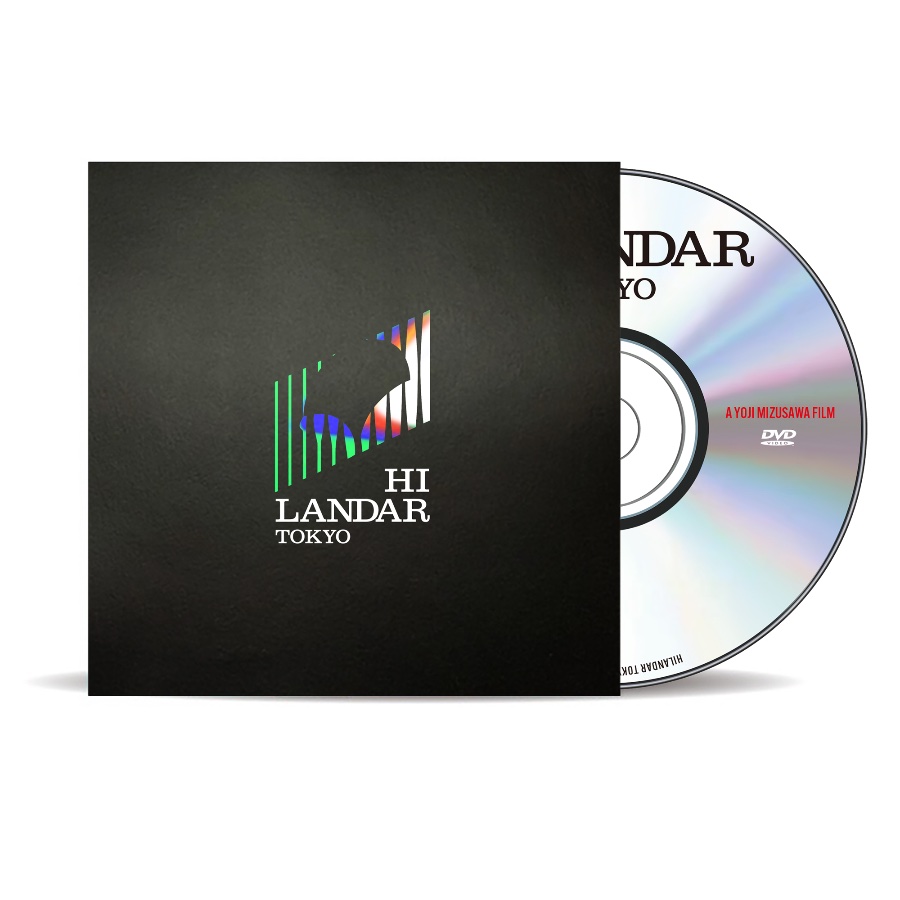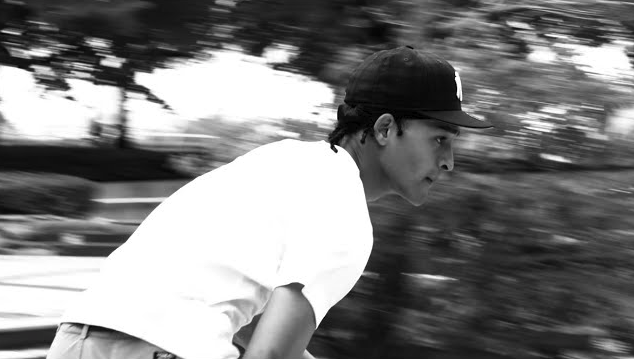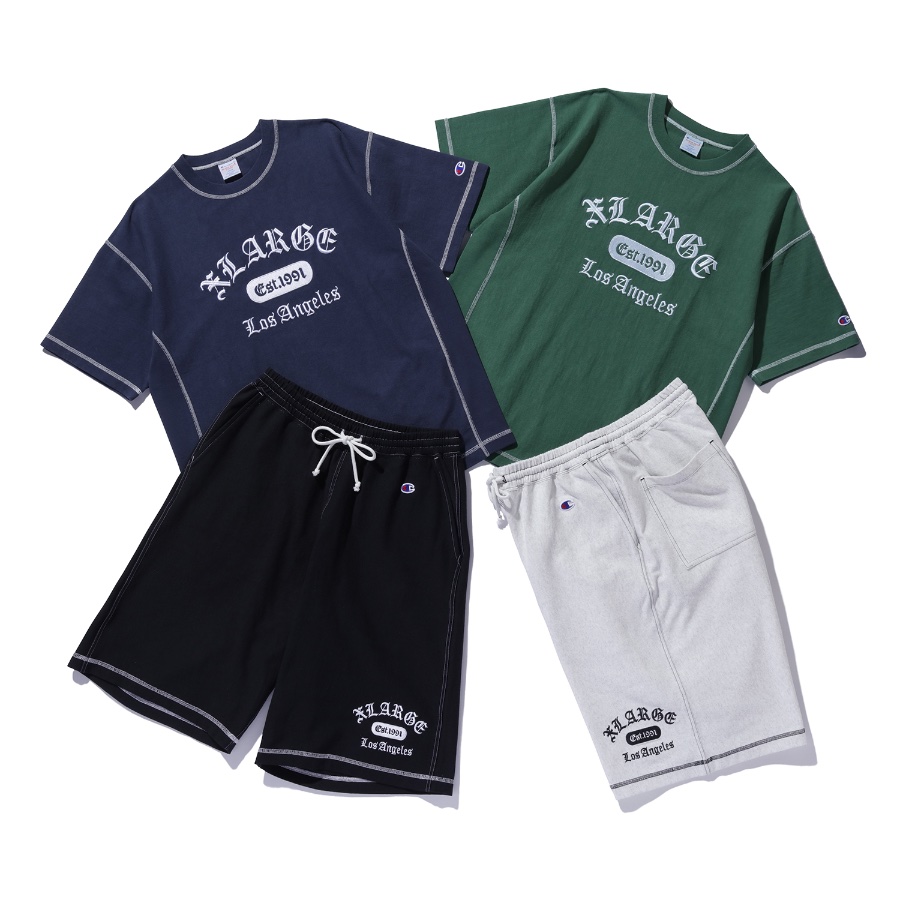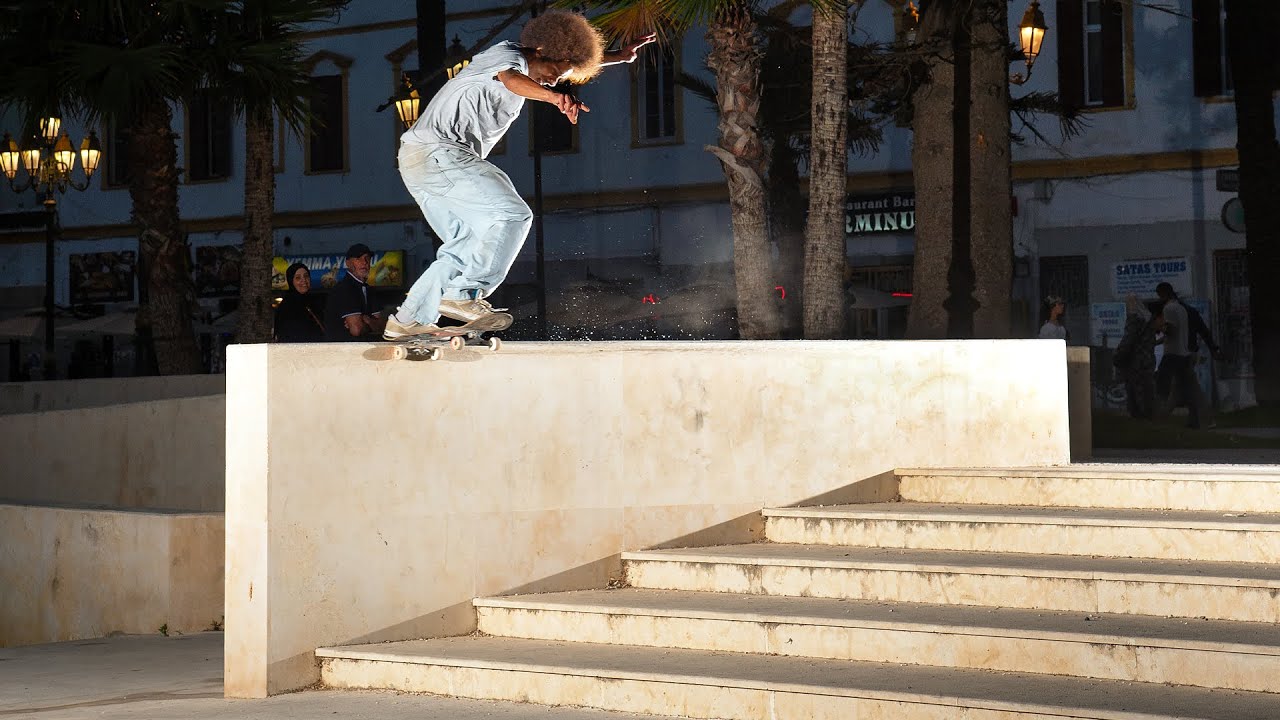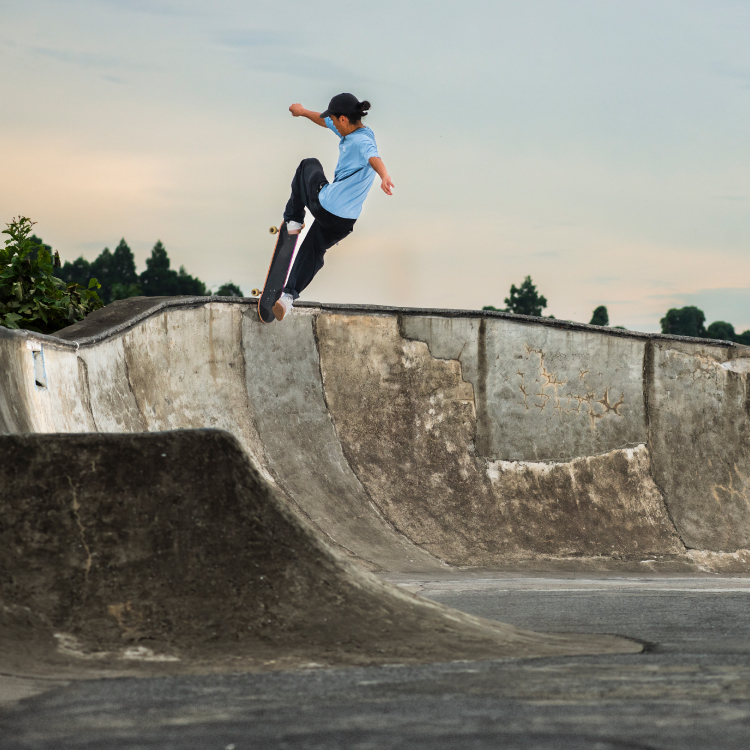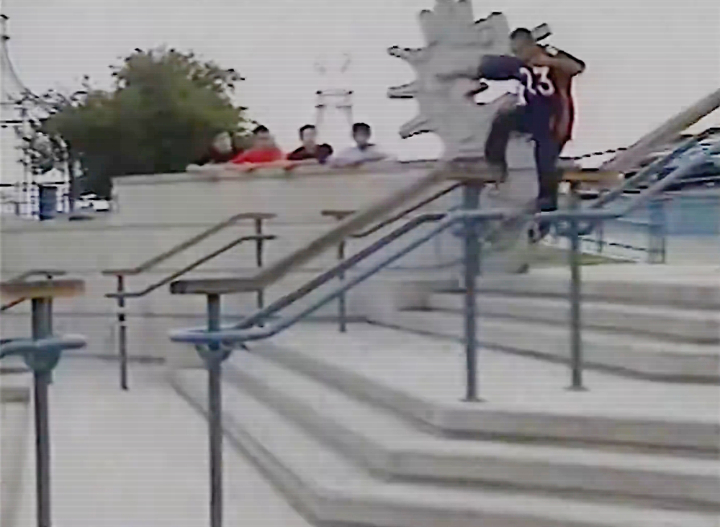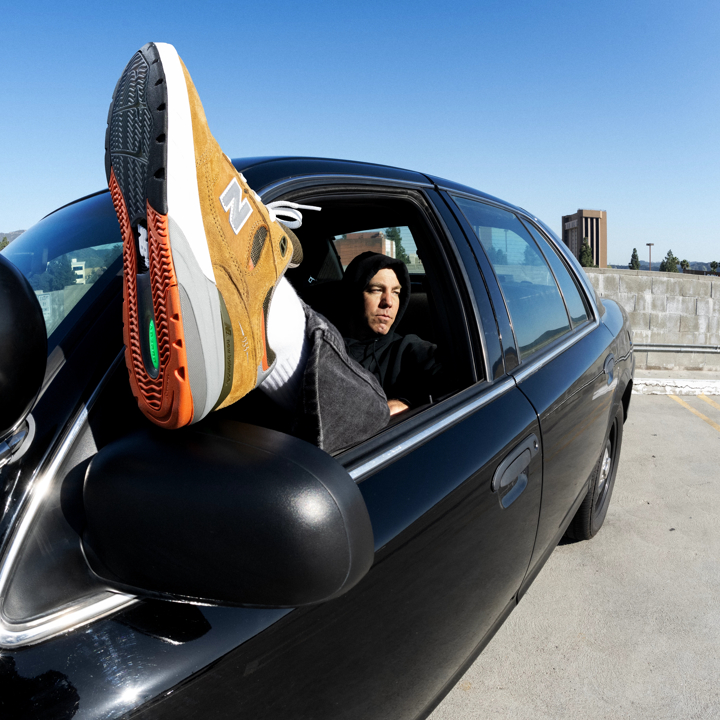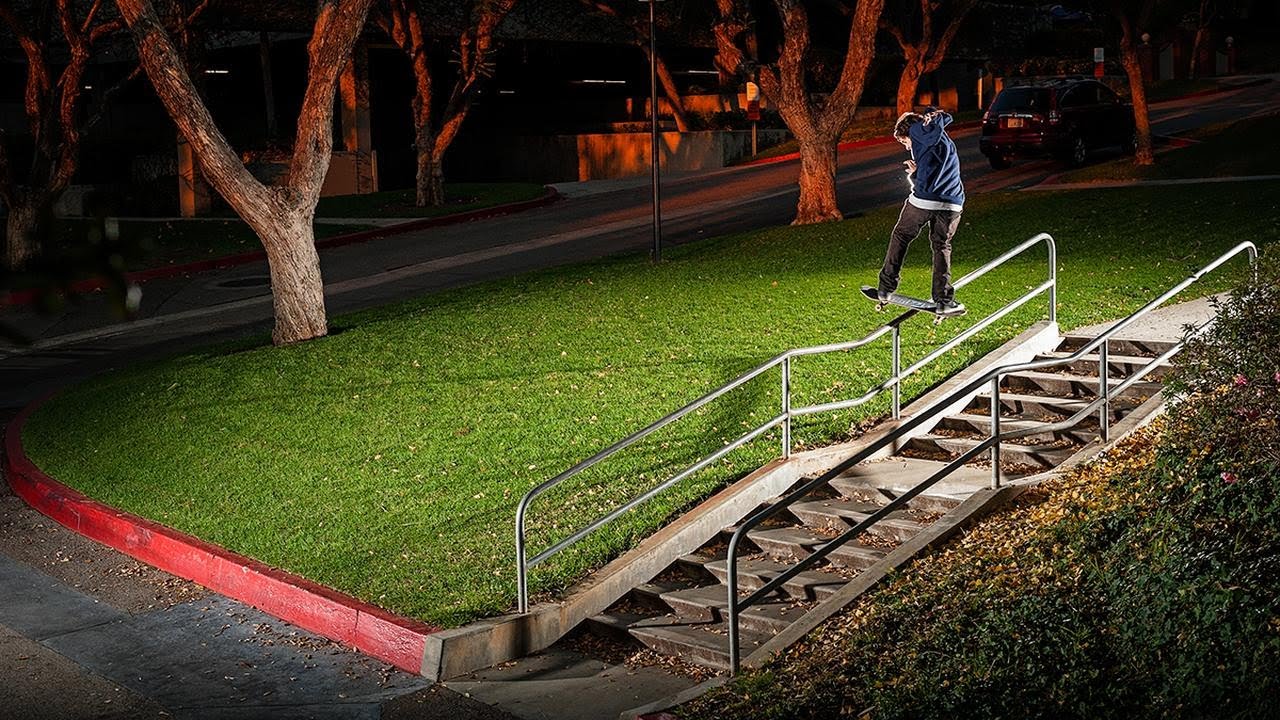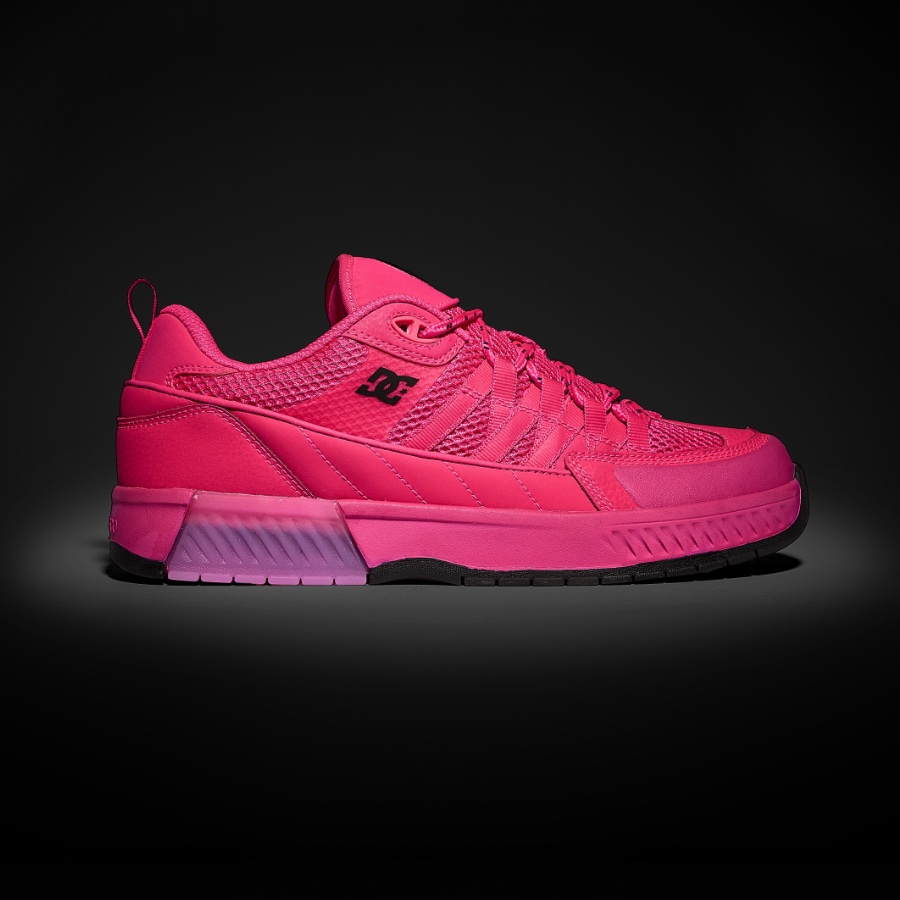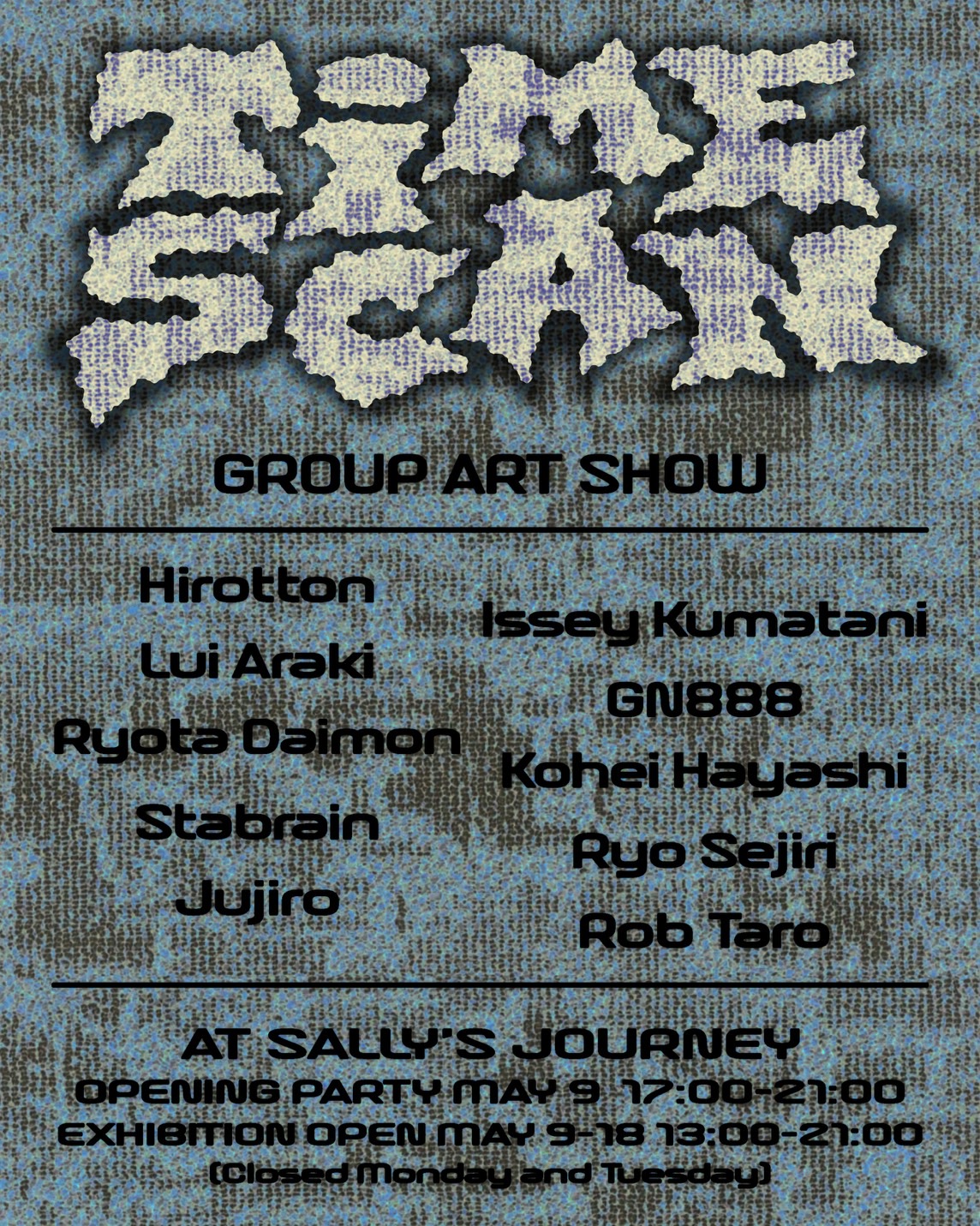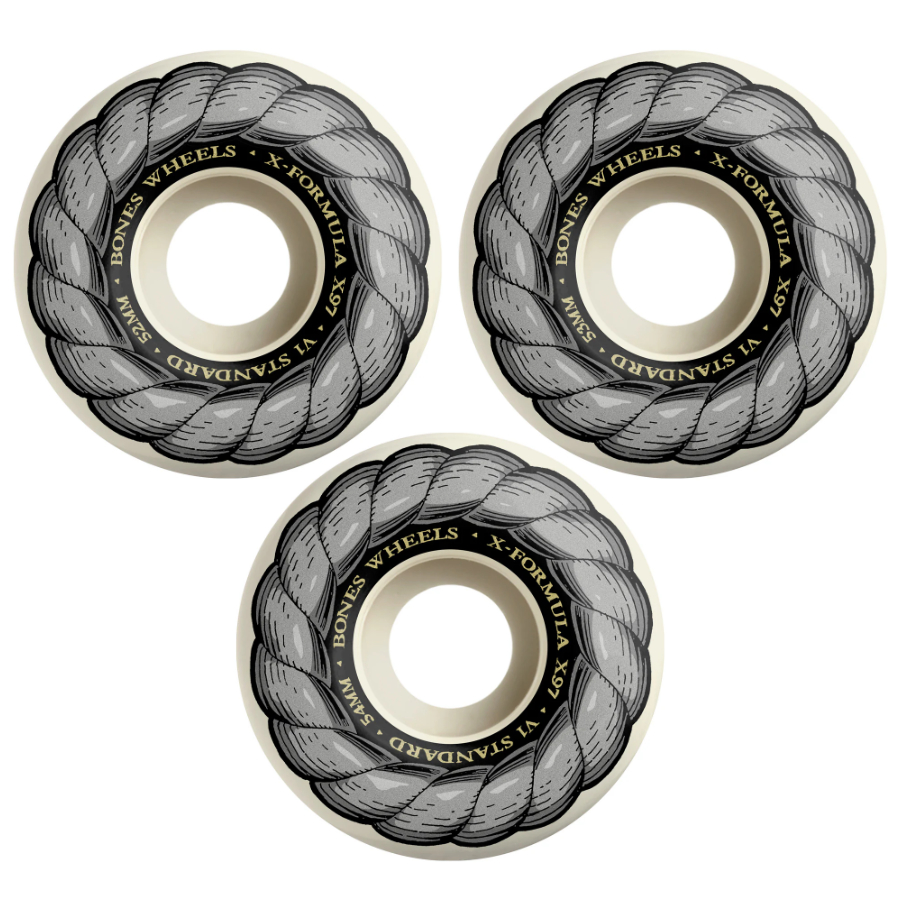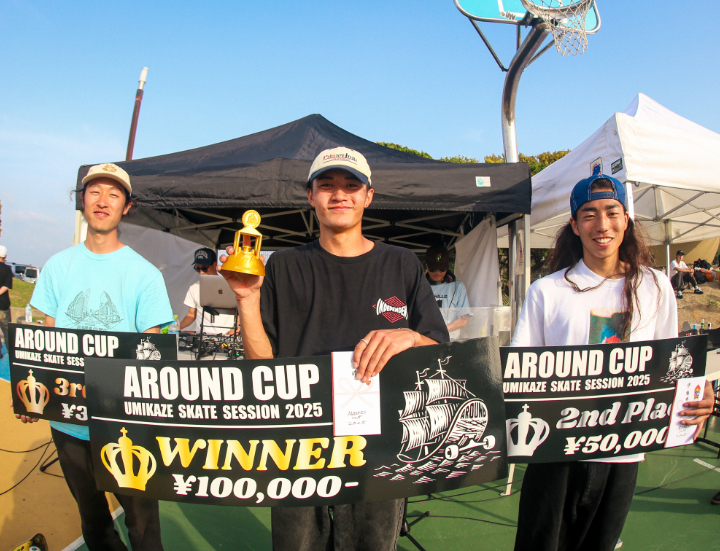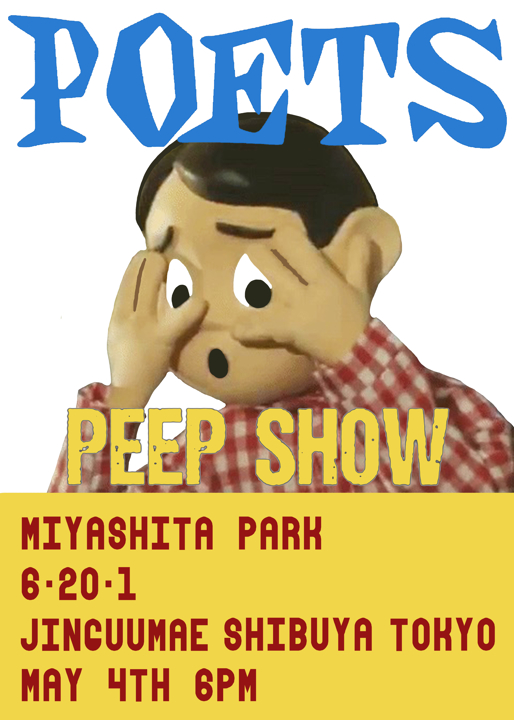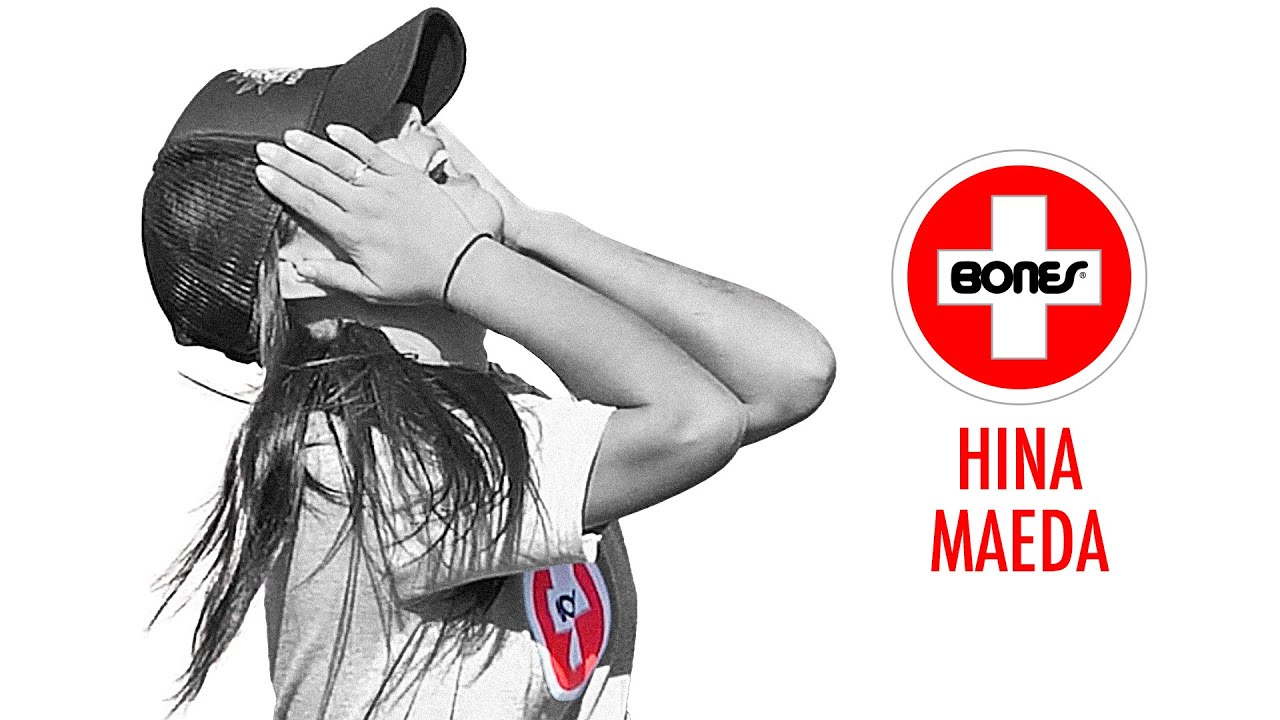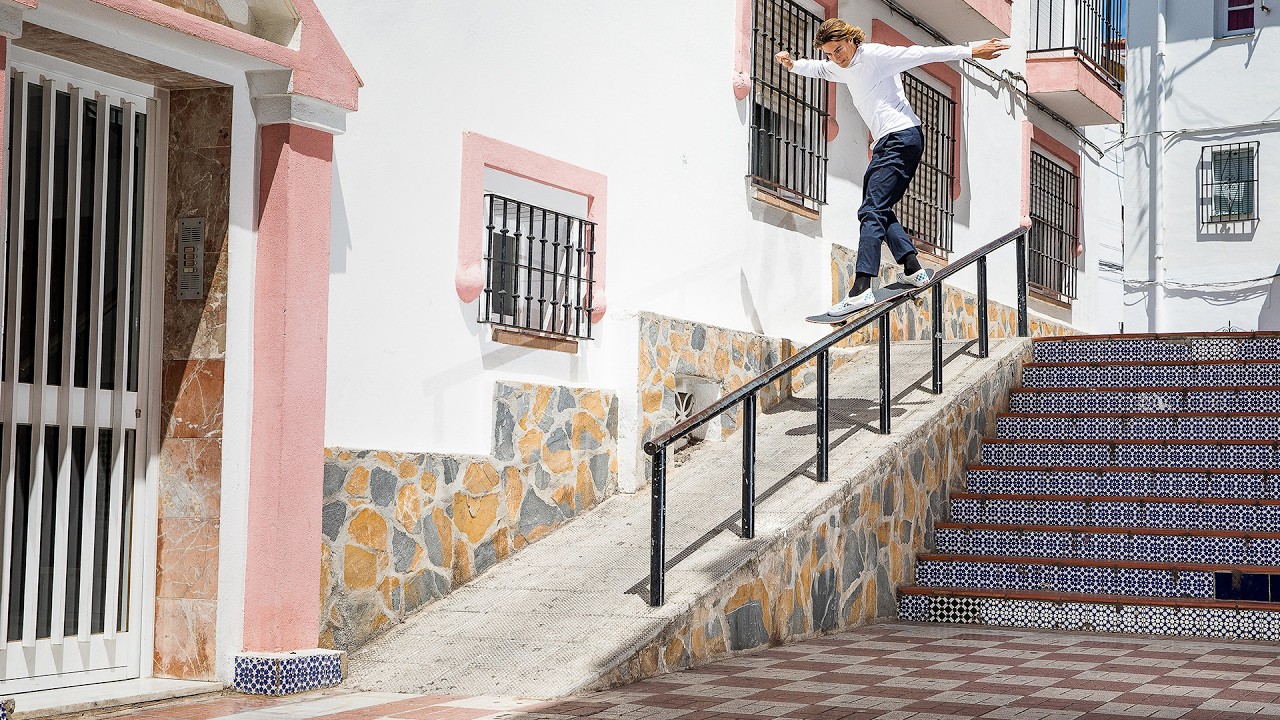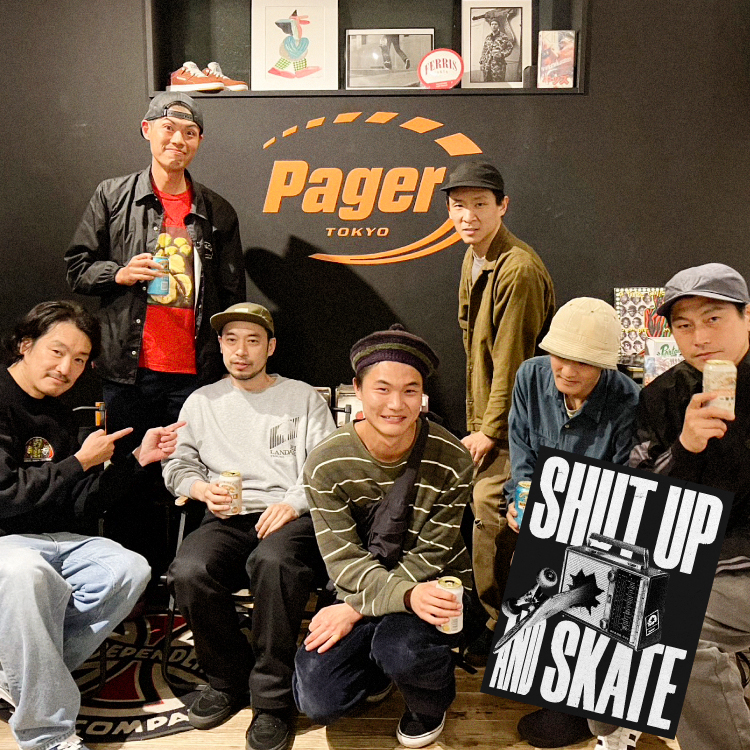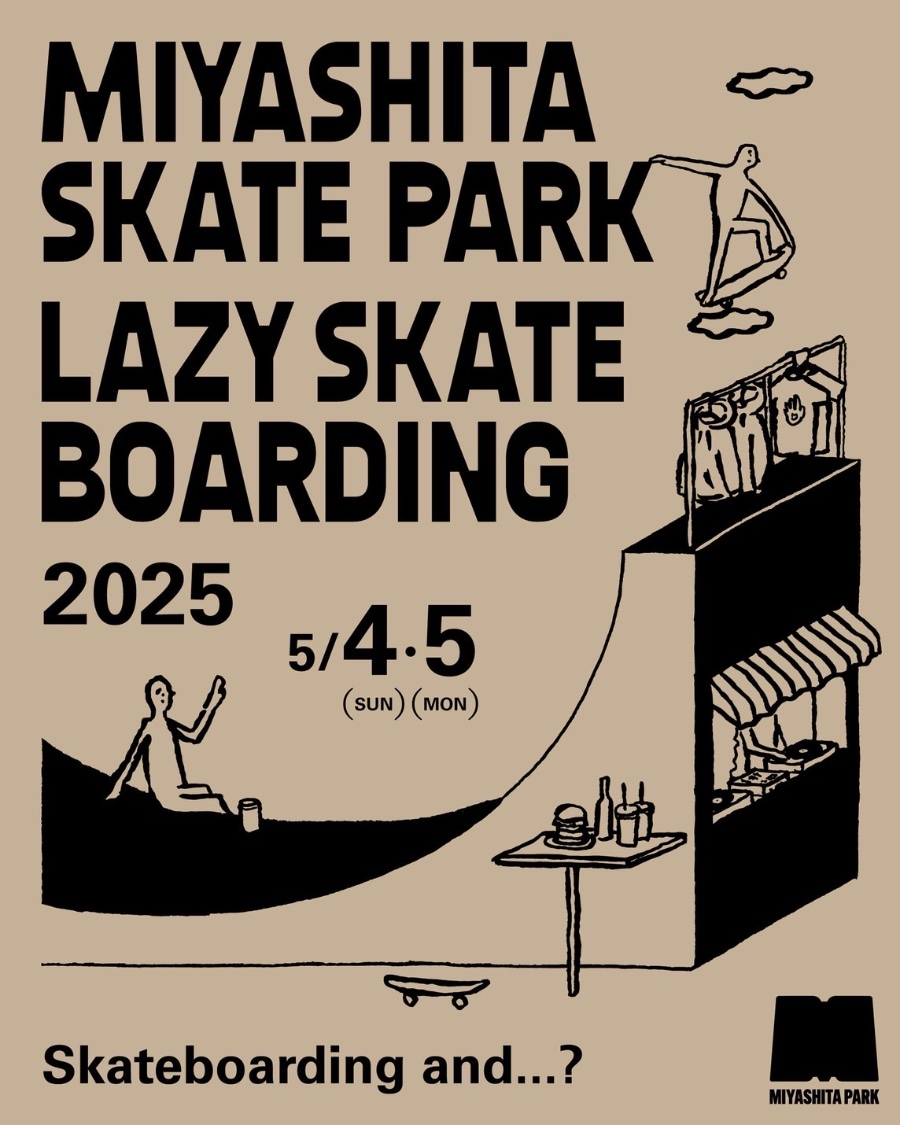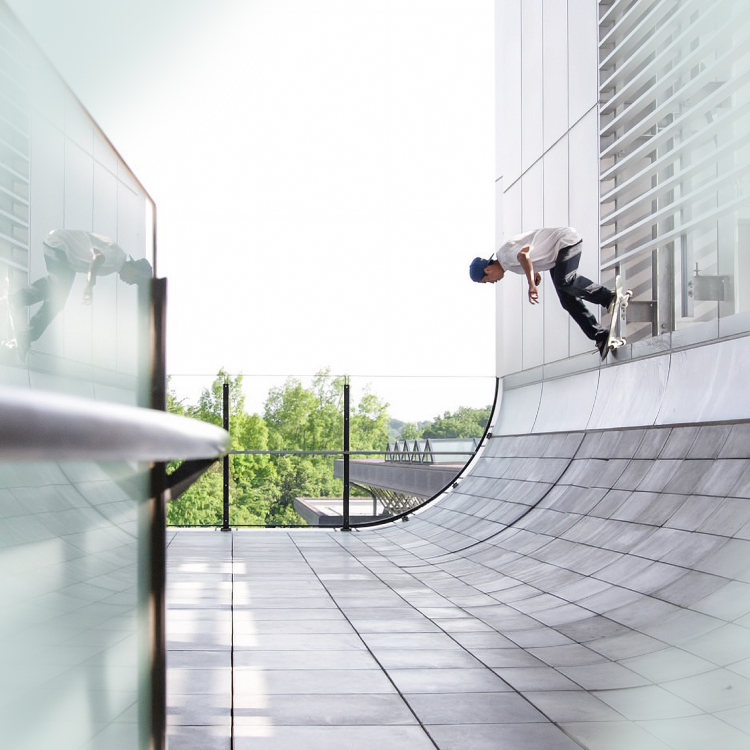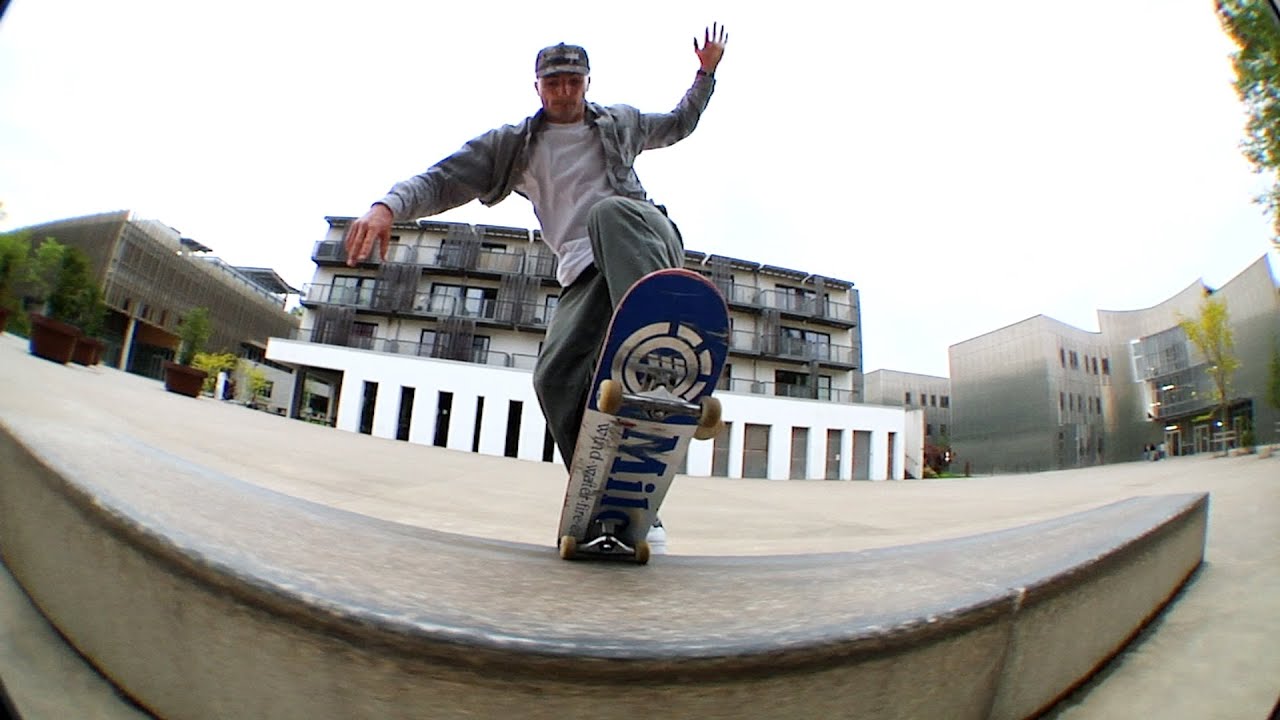Jacuzzi Unlimited's Snake Bite Tour traveled through China, Taiwan, and Japan. Through the words of brand leaders Louie Barletta and Jeff Davis, the essence of the brand and their passion come to the forefront.
──LOUIE BARLETTA & JEFF DAVIS (ENGLISH)

[ JAPANESE / ENGLISH ]
Special thanks_Advance Marketing
VHSMAG (V): How did you two meet and what led you to like working together?
Louie Barletta (L): Jeff met me before I met Jeff (laughs). We met doing an interview basically. I did an interview for a skate warehouse and I just got good vibes from him. Then around four years later, my boss Bod was talking about hiring someone new for team management. He mentioned Jeff, and I was like, “Oh yeah, that guy! I remember getting a good vibe from him during that interview.” So he came on board, got hired… And on his first day, I had him fire Enzo (laughs) And he actually did it. So I was like, “Yup, he’s great. He’s perfect.”
V: So that was for enjoi and that was your first time working as a team manager.
Jeff Davis (J): Yeah. It was a lot (laughs). I mean, team management is one of those jobs you can’t really train for—you just kind of get thrown into the fire. But it was something I’d always wanted to do, so honestly, it felt like a dream. And yeah, it was amazing. A lot of learning, for sure.
V: Unfortunately, enjoi had to come to an end. How did Jacuzzi start?
J: Well, I got fired (laughs).
L: We had started talking about doing another brand. We’d chat about the kind of guys we’d want on the team if we started something new, and how we’d want to do it differently. So the idea was always kind of there. With enjoi, we were mostly following a structure that was already in place—whether it was the graphics or the overall style. So when me and Jeff were on tour, we’d just talk about wanting to switch it up and try something new. And then… Jeff got fired (laughs).
V: But that was right after you guys did the tour and you had a big article on Thrasher, right?
L: Yeah. It was like a 16 page article.
J: I don't remember. I wasn't there at that time (laughs). I got fired right after the tour.
L: We did like a two-week tour, came home, and the day we got back, they fired Jeff. Not Dwindle, but like—the company above Dwindle. They just went through and fired a bunch of random people for whatever reason. So Jeff got let go. We had no idea anything like that was gonna happen. Yeah, it sucked—because we were coming off this high, like we’d just had an amazing tour, the team was vibing, everything felt good. And then we get home, and the next day Jeff calls me like, “Dude, what’s up? I just got fired.” And I’m like, “Wait, what? I haven’t heard anything about this.” So I called Bod, and he’s like, “Yeah, that didn’t come from me—it came from higher up.” So yeah, that’s when we decided to fast-track the new brand. Jeff was gone, and we already had the idea of doing a sister brand anyway. So me and Jeff went ahead and trademarked the name.
J: I had a lot of free time not working. So I started making the brand and then when it was time, we were ready to go.
V: Can you talk about the story behind the name Jacuzzi?
L: Yeah, I mean, that one’s pretty good—Ron Whaley used to call me Jacuzzi Lou (laughs). But yeah, I don’t know—we were throwing around a bunch of different names at the time.
J: Yeah. I mean, we threw a bunch of names around. And there was always that running joke on tour—like, “Ah, I hope Jacuzzi Lou comes out tonight.” It was kind of like this alternate persona—someone who’s just having a really good time. So it just kind of rolled from there and ended up becoming the name, realistically.
V: So the idea of starting a sister brand of enjoi was there before it had to come to an end. If enjoi survived, was that going to be Jeff's brand under Dwindle?
L: We’re getting into a bit of a gray area here—we may have quit, we may not have (laughs). When stuff first started going down with enjoi, we realized we didn’t have any real control because we didn’t own the trademark. That’s when I told Jeff, “Let’s just trademark a name ourselves. Then we can bring it to Dwindle. And if anything ever goes sideways, we’ll have something that’s ours—we can walk away with our own brand.” At that point, we were thinking Jacuzzi would be a sister brand to enjoi—they’d coexist. But Jacuzzi would be something we fully owned. That way, if anything sketchy happened, we could take it and leave. But before we could get the ball rolling, Dwindle beat us to it. They pulled the plug on everything. We were already coming up with names, branding ideas, everything while we were still on that tour. So when we got back and Jeff got fired, that just fast-tracked everything. Instead of it being a sister company, it was like—okay, this is the main thing now.
V: Right.
L: Because if they just fired Jeff out of nowhere, who’s next? If you’re running a company like a pyramid, and pro skateboarding is at the very bottom of that structure, and you fire the team manager—the person actually taking care of the team—then what’s the next step? You’re gonna cut the team. They were just holding onto the team so they could sell the remaining product. They’d toss the riders a bit of money or a little hope, just enough to keep them around so their names would help move the boards. But after Jeff got fired, they didn’t make a single new skateboard. They were just trying to sell through what they had left. Once we saw what was happening, we were like, “Okay—we’re out.” And since we already had the concept and structure for Jacuzzi in place, it was easy to just plug it in and go.
V: What was the response like?
L: The cool thing is, because we’d been in the industry for so long, we were able to pick up the phone and call people—Chop, Bod, Steve Douglas—and say, “Hey, we’ve got a plan. We’ve got a team. Everything’s ready to go.” And they were all like, “Yeah, we’re down.” Same with the distributors, everyone was on board. They were all eager to support it. A typical startup would’ve had a much harder time, but people already knew our track record—how dialed we are with product and marketing. So there was a lot of trust from day one. It didn’t feel like we were starting a new brand—it felt more like we were rebranding something that already had a soul. That made the launch a lot smoother.
V: Did you aim to bring the similar energy and identity from enjoi, or did you consciously set out to create something completely new?
J: I think it's totally different. What we wanted to do was take the heart of enjoi—the lightheartedness, the fun, the team vibe—and keep those elements that were still relevant, but modernize it. We wanted to center it more around the team. All of the graphics, ideas, marketing, and everything—it’s a group effort. It's about what everyone on the team is into, and it feels very organic. So we were more focused on catering to that.
V: I heard that Jacuzzi operates differently from traditional skate brands, with riders having a percentage rather than being paid a fixed amount per board sales.
L: We're still working on that stuff. But yeah, it's one of those things where you're getting a percentage rather than a fixed dollar amount. So if your board gets sold through distribution, the cut is smaller—but it's still better than the old days when pros were making like two bucks a board. If it sells online, directly to the customer, the rider gets closer to five or six dollars per board—sometimes even more. The margin is way better. So it really incentivizes everyone to stay away from big box stores, because the margins there are much lower. It also encourages the team to support and work with core skate shops, since that’s where they make the best returns—when our boards sell at local shops. So yeah, what we're doing is essentially profit sharing. And on top of that, riders still get a regular salary from us.
V: That's something new, right? Maybe other brands will follow.
L: But it really does make a difference—we saw this back at enjoi. Like, why would you care if your board sold or not? We were selling a million Panda T-shirts, so whether your board moved didn’t really matter. But with this model, there’s real incentive: if you put in the work and your board sells well, you actually make more money. Your effort directly impacts your paycheck. That’s how it used to be when I was coming up—drop a video part, board sales would spike, and you'd see a big bump in your income. These days, video parts come out all the time, and you don’t really see that same kind of sales jump. But what does make a difference now is when someone’s constantly out there—skating, posting, doing their own thing, promoting themselves. You see spikes from that kind of ongoing presence. So this system encourages that—because they're essentially building their own personal brand. And maybe this is a bit selfish on my part, but I think it’s cool that they’re also setting themselves up for the future, even if they don’t realize it yet. Like, they’re building something that could eventually become their own thing. At enjoi, it felt like the brand was way up here, and the riders were way down here. But with Jacuzzi, I want the rider’s name to be as big as the brand name. I don’t want the brand to overshadow the team. I want them to feel like they own part of it—because they do. And I think that kind of ownership lifts everything up.
V: What has changed from enjoi to Jacuzzi on a personal level?
L: We were just friends and now we're best friends (laughs).
V: This is your second year. What have been some of the most memorable projects or moments with Jacuzzi so far?
J: Oh man. I mean, I think with every project—every video we put out—you really get to see everything come to fruition. Every new board graphic series, it’s like you’re watching the brand grow in real time. And now that we’re two years in, everything's getting better. When you first start a brand, everything's fresh, you're figuring it out as you go. But now, you can see it starting to take shape—getting more defined, more solid. It's like you're watching it mature, really come into its own.
L: I think for me, the most exciting thing is seeing the brand start to stand on its own. Like, it’s out there walking on its own legs now. You see people wearing it in the streets, and I know that person rocking the shirt doesn’t know Louie Barletta—they just know the brand. And that, to me, is huge. It means we’ve built something strong enough that it has its own identity now.
J: And I think one of the coolest parts of this trip has been realizing just how much the brand has grown. You know, something that started as an idea in an apartment has turned into something people are genuinely excited about—even in other countries. I think that’s such an amazing and beautiful thing.
L: Since Jeff started working with me back in the enjoi days, I used to give him tasks—I was joking about him firing somebody but I would do these things just to throw him into the deep end a bit. It was all about helping him learn and see how things really work. Back then, with enjoi, he didn’t really get to see the backend of things—like how a graphic goes from being just an idea, to a sketch, to something that gets finessed, printed on a board, and then one day you’re out skating and you see some random kid riding it. That moment when you think, “Whoa, I created that.” So for me, one of the most exciting things is seeing Jeff experience that now. Watching him recognize something out in the world that started as his idea—and realizing someone paid money for that idea. That feeling of “I made that,” it’s powerful. I’ve felt that with enjoi, and now it’s rad to see Jeff getting that feeling too. Even though I still give him grief and I still make things hard for him. But it's all like a learning experience for him.
V: You two have been working together for a long time. What's the secret to not butt heads.
L: I think we butt heads but I think we have a really good relationship. A big part of that is just being two adults. And honestly, in skateboarding, people often don’t really grow up—it kind of stunts that growth. But Jeff and I, we’re both very adult about things. I can get mad at Jeff, I can even yell at him—but then we always come back, talk through it, and say, “Okay, this is why I felt that way,” or “I see where you're coming from. Let’s go your way on this one.” We’re like-minded and come from the same background, so getting along isn’t really that hard. And I think we ground each other well. We always say we’re like the good cop and bad cop. When a team rider messes up, I’m usually the one to go in and say, “You fucked up. This is what you did wrong.” But then Jeff comes in with, “Here’s what you could do better,” and smooths it all out. So we really balance each other—good yin and yang. And the biggest thing, honestly, is that neither of us has an ego. I’ve had other partners on projects before, and what always makes things work—or not work—is ego. But with us, nobody’s trying to take credit or say, “That was my idea,” or “This is mine.” That’s so important when you’re working with someone. Because once one person starts thinking they did everything, that’s when things start to break down. With us, we’re just both excited to be doing this. We’re stoked that people care. Like, even now, getting a new team rider—it's still one of the most amazing feelings. Like, this guy’s down for what we’re doing? For one of our dumb ideas? That’s huge. And as long as we keep feeling that way, I don’t think our relationship is ever in trouble.
—Jeff Davis
V: You have Aiki on the team. What did you see in him?
J: I met him in Tampa—and he just fit right in. It was at a Tampa Am back when I was still with enjoi. We were on a tour, drove out there, and he just clicked with everyone. Even with the language barrier, it didn’t matter. He was hanging out with us the whole time. And that’s kind of the biggest thing we look for in team riders. Obviously the skating matters, but what’s even more important is how someone meshes with the rest of the crew. Because at the end of the day, we’re all friends. Everyone gets along—to me, that’s the most important thing.
L: It is. And that comes from my background—like, sitting in a van for 30 years. To me, the most important thing is: can you sit in a van with someone? Not just as a team rider, but like, when I was on the road, if there was someone I didn’t wanna sit next to, that four-hour drive sucked. Or a two-week tour felt endless. But if you’re sitting next to someone you're stoked to be around—joking, hanging out—it makes the time fly, and the vibes higher. That’s the most important thing for me. And like Jeff was saying, Aiki was our distributor Advance Marketing's flow guy, right? So I knew who he was. But Jeff was like, “Hey, this kid’s awesome—super fun to hang with, the guys love him.” And this is what I mean when I say there’s no ego—I trust Jeff. If Jeff says he’s legit, I’m backing it. I don’t need to be the guy who says, “I put him on.” I believe in Jeff’s opinion. So when Jeff said, “He’s the one,” I was like, “Cool, let’s bring him in.” So yeah, once we started Jacuzzi, we knew—he’s coming with us. We’re all down for him.
V: Jacuzzi has a strong aesthetic. Just like how it was with enjoi, you can instantly see it and say, "That's Jacuzzi." How did that come about?
L: Whenever I draw something, Jeff’s like, “That looks like an enjoi graphic (laughs).” And I’m like, “Fuck!” Then Jeff draws something and I go, “Now that’s a Jacuzzi graphic.”
V: So Jeff's responsible for the art. Where do you get all the inspiration?
J: It's all just stuff we're into.
L: We’re constantly taking photos of stuff and sending it back and forth. Sometimes it's like, “This is really rad,” but then I’m thinking, "Man, that’s a sick concept, but I’ve seen that kind of thing not sell in the past." So I’m like, let’s not go down that road. And other times, it’s like, "Oh my god, this is gold." So it’s really about filtering things down to the gold. Jeff’s really good at taking those little sparks—something cool he found—and turning it into a concept and then into a finished product on a board. That’s his thing. And his secret skill is editing, which I didn’t even know about at first—he actually lied to me about it (laughs). He just told me on this trip, he was like, “Lou, remember when we were making that first video and I said I could edit?” He goes, “Yeah, I’d actually never edited anything in my life.” So yeah, he doesn’t like to admit it, but I think editing might be his secret skill. 'Cause I don’t know many people who can fake it like that and be that good right away (laughs).
V: So this is your second year and you're in Japan. Is there anything that's lined up after the tour?
L: The big one is—after starting this tour and seeing how much footage everyone’s been getting—we decided we're gonna start working on a full-length video now. That wasn’t really the plan at first, but you can feel the energy. Like, the whole team is hyped. If one guy gets a trick, suddenly we’re having days where like, we're getting seven tricks. We’re realizing we could go home from this trip with a solid foundation for a full-length, on top of all the smaller projects we’re still doing. Jacuzzi’s not the kind of brand where someone films a part in Florida and another guy films in California and we just stitch it all together. It’s about us being together. Seeing everyone mesh and feed off each other while filming—that’s the essence of Jacuzzi. Like Jeff said, we’re just a group of dudes who genuinely want to hang out. So making a full-length where I’ve never even seen someone’s footage? That’s not us. I want to be at the spot, watching it go down in real life. That’s what makes it special. A lot of other teams are just a bunch of individuals filming separately, then editing it into a project. But for us, seeing how cohesive the energy is—it just makes sense. That’s what Jacuzzi is. It needs to feel like we’re all in it together, because we are. That’s what’s exciting.
—Louie Barletta
L: When we first decided we were really gonna do this—Jacuzzi—I told Jeff, this isn’t for you, and it’s not for me either. We’re gonna sacrifice a lot of energy and deal with a lot of stress, but we have to stay really clear and honest about why we’re doing it. And for me, the reason was simple: we’re here to make dreams come true. I did it with enjoi. We had the Whitey Panda, we had all those amazing moments—but what kept me coming back every day was helping these kids chase their dreams. Like, on this trip, 75% of the guys had never been to Asia. That alone is already something—seeing them experience this, live something they never thought they would. And at the end of the day, everybody's dream is to be a pro skater. So let’s give them the platform to make that real. Is it going to suck sometimes for me and Jeff? Absolutely. There are gonna be moments where we’re like, “I don’t want to do this right now,” or “I don’t want to take this call.” But you do it. That’s the thing I try to emphasize to Jeff—when you’re part of this brand, when you take ownership of it, you also take ownership of the why. And for us, the why is to make dreams come true. That’s Jacuzzi in a nutshell.
J: Yeah. You nailed it (laughs).
Louie Barletta @louiebarletta
Originally from San Jose, California. Age undisclosed. A skate hero who approaches skateboarding with unique ideas. Breaking away from the bowl-cut hairstyle, he launched Jacuzzi Unlimited (@jacuzziunlimited).
Jeff Davis @jeffdavis__
Former team manager of enjoi. After the chaos at Dwindle led to the demise of enjoi, he is now running Jacuzzi Unlimited alongside his close friend, Louie Barletta.
